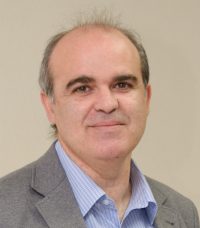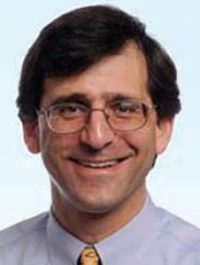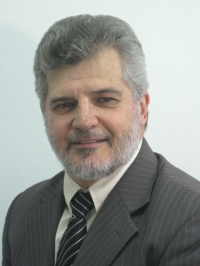Invited Talk
November 27th, 2023
Improved Operation of Power Converters to Manage their Remaining Useful Lifetime
The estimation of remaining useful lifetime (RUL) of the most critical components in power systems is a hot topic in research and industry. The development of sensing systems and the ability to process such data makes it possible to monitor the operation of power systems in detail and, thus, reliably estimate the accumulated damage in the most critical components of the system. With this information, an optimal plan for operating and maintaining systems can be designed in order to reduce costs or extend system availability. In the talk, these concepts are presented, focusing on accumulated damage in power semiconductors and capacitors in power converters for different industrial applications such as motor drives, photovoltaic inverters, and modular converters. The talk presents some methods for managing the lifetime of critical components and discusses how to operate the systems taking into account parameters such as efficiency, RUL, fault tolerance, equipment availability, maintenance costs, among others.

Prof. Jose I. Leon
University of Seville, ES
Jose I. Leon (Fellow IEEE) received the degree in Telecommunications Engineering and the MSc and PhD degrees in Electronic Engineering from the University of Seville (USE), Seville, Spain, in 1999, 2001, and 2006, respectively. He is currently an Associate Professor in the Department of Electronic Engineering at USE. Since 2019, he is also a Chair Professor at the Department of Control Science and Engineering of Harbin Institute of Technology, Harbin, China. In 2017, he was elevated to the grade of IEEE Fellow with the citation “for contributions to high-power electronic converters”. His current research interests include modulation and control of power converters for high-power applications and renewable energy systems, as well as management of the remaining useful life of the most critical components in power systems.
Designing High Step-down Converters Using Quadratic Converters
In this presentation, we unveil a systematic methodology for constructing a diverse array of quadratic converters. This approach has the potential to yield hundreds of novel topologies for high step-up or step-down gain DC-DC converters. To illustrate the method, we explore one particularly fascinating quadratic converter topology, demonstrating its capability to efficiently convert 48V to 1V, with significant implications for contemporary, low-voltage, high-current CPUs, GPUs, ASICs, and DDR memory applications. As a practical illustration of our methodology, we explore one particularly intriguing quadratic converter topology that facilitates a conversion from 48V to 1V with 20A output: By integrating the series-capacitor into the quadratic buck converter architecture, significant improvements are achieved in terms of lower switch voltage stresses, reduced inductor current ripples, and reduced output voltage ripple compared to the original quadratic buck converter. The converter achieves efficiencies approaching 94% with more improvement possible when further optimized from its preliminary prototype. This example converter underscores the potential of quadratic converters to revolutionize power delivery systems in the context of contemporary low-voltage, high-current electronics.

Prof. Brad Lehman
Northeastern University, US
Professor Brad Lehman (Northeastern University, Boston) is President of the IEEE Power Electronics Society (PELS, 2022-2023). He previously was Editor-in-Chief of the IEEE TRANSACTIONS ON POWER ELECTRONICS from 2013-2018. Dr. Lehman has been the recipient of the 2015 IEEE (PELS) Modeling and Control Technical Achievement Award, a 2016 IEEE Standards Medallion, the 2018 IEEE Award for Achievement in Power Electronics Standards, and the 2019 IEEE PELS Harry A. Owen, Jr. Distinguished Service Award. He has been listed in the inaugural edition of the book The 300 Best Professors, Princeton Review, 2012. He performs research in power electronics and renewable energy.
November 28th, 2023
Predictive Control - A Simple and Powerful Method to Control Power Converters and Drives
Model Predictive Control (MPC) is a conceptually simple yet powerful methodology to control power converters, electric drives and large systems, such as electrical drives or electrical power grids. MPC provides many advantages in comparison with traditional controllers including the capability to intuitively handle a large variety of control problems by considering different modes of operation and directly incorporating system constraints and additional requirements. The underlying concepts are intuitive, the resulting controllers are inherently stable and, once calculated, easy to implement. The advances in processing power of digital signal processors have recently promoted MPC into the first commercial applications, which opened a door toward improved performance and efficiency of power converters, drives and power grids.

Prof. Ralph M. Kennel
Technical University of Munich, DE
Ralph M. Kennel was born in 1955 at Kaiserslautern (Germany). In 1979 he got his diploma degree and in 1984 his Dr.-Ing. (Ph.D.) degree from the University of Kaiserslautern. From 1983 to 1999 he worked on several positions with Robert BOSCH GmbH (Germany). Until 1997 he was responsible for the development of servo drives. Dr. Kennel was one of the main supporters of VECON and SERCOS interface, two multi-company development projects for a microcontroller and a digital interface especially dedicated to servo drives. Furthermore he took actively part in the definition and release of new standards with respect to CE marking for servo drives. Between 1997 and 1999 Dr. Kennel was responsible for “Advanced and Product Development of Fractional Horsepower Motors” in automotive applications. His main activity was preparing the introduction of brushless drive concepts to the automotive market. From 1994 to 1999 Dr. Kennel was appointed Visiting Professor at the University of Newcastle-upon-Tyne (England, UK). From 1999 – 2008 he was Professor for Electrical Machines and Drives at Wuppertal University (Germany). Since 2008 until his retirement in 2022 he was Professor for Electrical Drive systems and Power Electronics at Technische Universitaet Muenchen (Germany). His main interests are: Sensorless control of AC drives, predictive control of power electronics and contactless energy transmission. Dr. Kennel is a Senior Member of IEEE, a Fellow of IET (former IEE) and a Chartered Engineer in the UK. Within IEEE he was Treasurer of the Germany Section as well as Region 8 – furthermore he has been Distinguished Lecturer of the Power Electronics Society (IEEE-PELS) as well as Vice President Meetings of the same society. In 2018 Dr. Kennel received the Doctoral degree honoris causa from Universitatea Stefan cel Mare in Suceava (Romania). Dr. Kennel has received in 2013 the Harry Owen Distinguished Service Award from IEEE-PELS, the EPE Association Distinguished Service Award in 2015 as well as the EPE Outstanding Achievement Award in 2019. Dr. Kennel was appointed “Extraordinary Professor” by the University of Stellenbosch (South Africa) from 2016 to 2019 and as “Visiting Professor” at the Haixi Institute by the Chinese Academy of Sciences from 2016 to 2021. There he was appointed as “Jiaxi Lu Overseas Guest Professor” in 2017. In 2018 Dr. Kennel was appointed Guest Professor at Harbin Institute of Technology (HIT), Harbin, China. In 2019 Dr. Kennel was appointed „Honorary Chair Professor“ (“distinguished visiting professor”) at Shandong University in Jinan, China.
November 29th, 2023
Paradigm of the Brazilian Electric System of the Future: A Reflection on the Optimization of the South/Southeast Energy Sector
The new Electric Power System began to be structured with the emergence of Distributed Generations (DGs). With regard to Brazil, the main concern is centered on the advancement, development and progress of the industry, which would receive better quality and cheaper electricity, making the industrial sector more competitive internationally. The introduction of DGs inserted renewable energy into Electric Power Systems, particularly solar photovoltaic and wind energy. From the design of the DGs, microgrids emerged, which added energy storage systems to the DGs, through batteries, supercapacitors and flywheels. This set of systems formed by power inverters, energy storage and adequate control gave rise to Active Electrical Distribution Networks. The various microgrids interconnected to the Active Electrical Distribution Networks, managed from a specific control system, with communication between the various electrical networks of the system, gave rise to the Intelligent Electrical Networks, known in the international literature as Smart Grids. It is important to emphasize that the configuration of intelligence is only achieved through an efficient and well-structured information (communication) system, which allows all elements (components) of the electrical system to communicate, exchanging information about their generation and/or demand. A communication system with a capacity similar to human language (High-Level Communication Language). This language allows the exchange not only of information, but, above all, of knowledge, between two or more Microgrids and/or Units. The integration of Electric Vehicles to the Electric Power System, more specifically to the Active Electric Distribution Networks, completed the general picture, presenting a complete electric system, where all the subsystems complement each other and communicate, generating and consuming electric energy. In the implementation of this proposal, the control and communication systems are fundamental. The use of Artificial Intelligence techniques, such as neural networks, will be vital for the implementation, consolidation and success of the ideas presented here. Therefore, the reflection discussed here will focus on Intelligent Electric Networks, which are of fundamental importance in the development, modernization and, mainly, in maintaining the competitiveness of the national industry. It is expected that with this proposal greater efficiency in the generation and consumption of energy will be obtained, enabling a better quality of life for Brazilian society and for the planet.

Prof. Denizar C. Martins
Federal University of Santa Catarina, BR
Denizar C. Martins holds a degree in Electrical Engineering (1978) and a Master’s degree in Electrical Engineering (1981), at the Federal University of Santa Catarina (UFSC) and PhD Degree in Electrical Engineering from the National Polytechnic Institute of Toulouse, Toulouse, France (1986). He has published over 330 (three hundred thirty) scientific papers. He has developed several technological projects in partnership with Brazilian Companies, resulting in the realization of some patents of invention. He is the co-author of five national books in the area of Power Electronics and three chapters of international books in the area of Electronic Processing of the Photovoltaic Solar Energy. He is a Founding Partner of SOBRAEP (Brazilian Power Electronics Society), having been its President for two years. He was Coordinator of the Post-Graduation Program in Electrical Engineering at UFSC. He was Head of the Electrical and Electronic Engineering Department at UFSC for two consecutive terms, and He is currently Supervisor of INEP (Power Electronics Institute). He is a full professor in the Electrical and Electronic Engineering Department at the Federal University of Santa Catarina, where He teaches undergraduate and postgraduate courses. His research areas are: DC-DC and DC-AC static converters, power factor correction, power quality, distributed generation systems, DC and AC microgrids, simulation of static converters and electric drive.
